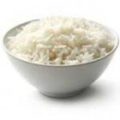Today, I am sending you a small snippet on the historical aspect of Diabetes Mellitus which I prepared few years back for one of my presentations. I am sure this will be an addition in your knowledge bank. I would appreciate your feedback, and also, you can send me your preferences about the topics you are more interested in. I shall try to include them at the earliest in coming issues of NewsLetter.
Bye & enjoy your studies,
Dr. Anil Singhal, MD(Hom.)
—–
Diabetes mellitus – a historical aspect
Diabetes mellitus is a complex metabolic disorder which has been recognised for thousands of years but which is still only partially understood.
The existing medical records hint that physicians have been aware of diabetes for nearly 4000 years.
Earliest reference of this condition appears in Ebers papyrus (1550 BC).
Vedic medical treatises from pre Budhist India describe conditions in detail which seem definately to be diabetic. They identify the disease by the copious flow of urine. They also noted a hereditary disposition to the disease and connected it with obesity, indolence, lethargy and over indulgence in sweets, rich foods and milk products.
Sushrut noted the sweet urine, an observation which does not appear in the western literature until the seventeenth century.
Greek medicine in 2nd century AD described this condition as “a melting down of the flesh and limbs into urine.”
Aretaeus commented on the Greek word diabetes which signifies a siphon. This word was used because the fluid does not remain in the body, but uses the man’s body as a ladder … whereby to leave it.”
Thomas Willis, personal physician to King Charles II, stated diabetic urine as “wonderfully sweet as if it were imbued with Honey or Sugar.” And he added the Lation word mellitus (honey sweet) to the Greek word Diabetes.
Thus, broadly speaking, Diabetes mellitus is a condition inwhich human body is used as a siphon producing sweet urine.
—










pl. let me know if homoeopathy has the cure for diabetes 2.
Jyoti Sharma
8586981982
Pl. let me know the cure for diabetes 2 in homeopathy.